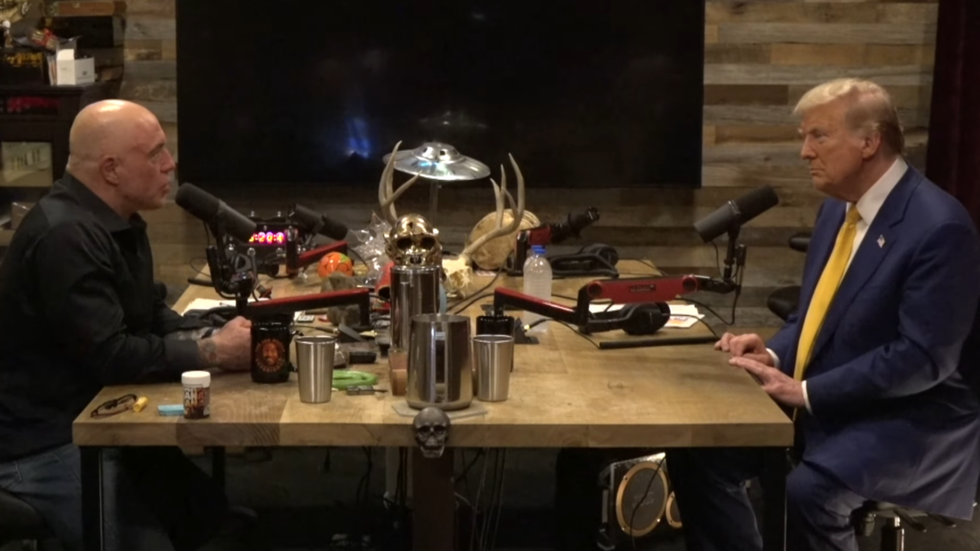Podcaster Joe Rogan has publicly endorsed Donald Trump ahead of the 2024 election, emphasizing the significance of the upcoming vote for the future of the United States. His endorsement followed an insightful interview with Elon Musk, the influential Tesla CEO, who has become a prominent supporter of Trump. During their conversation, Musk argued vehemently that if the Democrats win the election, it could set off a series of events leading to a drastic change in American society that would forever alter the political landscape. Rogan succinctly expressed his agreement with Musk’s views, suggesting that without Musk’s influence, the country might be in a precarious situation, indicating that Musk’s insights provide strong support for Trump’s candidacy.
Rogan’s support for Trump comes at a critical time when the former president is up against Democratic nominee, Vice President Kamala Harris. He shared his sentiments with his large social media following on X (formerly Twitter), underscoring Musk’s role as a “free speech absolutist” and the importance of their discussion as a means of understanding the stakes of the election. Specifically, Musk warned about the potential for Democrats to significantly alter immigration laws, claiming that such changes could lead to competitive advantages for Democrats in swing states—hence the urgency he urged upon voters. This fight, according to Musk and Rogan, is not merely political; it’s portrayed as a significant struggle for American identity and governance, suggesting an existential consequence tied to the outcome.
The reaction to Rogan’s endorsement was immediate and notable. Trump, during a campaign rally in Pennsylvania, acknowledged the endorsement with gratitude. He highlighted the rarity of Rogan’s public endorsements, which amplified the significance of Rogan’s support in the context of popularity and influence within media circles. Trump’s message resonated with his supporters, further building momentum as the election draws near. For both Rogan and Musk, the emphasis on voting was underscored with a sense of urgency, promoting a narrative where individuals must engage politically, reflecting the potential for drastic societal changes depending on the electoral outcomes.
The backdrop of Rogan’s endorsement includes a recent appearance by Trump on the Joe Rogan Experience podcast, which showcased an extensive dialogue covering diverse issues relevant to the current political climate. In that conversation, Trump made accusations against Democrats, claiming they pose a greater threat to the nation than any external adversary. The podcast, highly regarded for its reach, amassed considerable viewership, highlighting its potential as a platform for influencing public opinion. Rogan’s desire to host Kamala Harris, despite the logistical challenges presented by her campaign team, illustrated his intention to foster open dialogues across the political spectrum.
Nevertheless, the reluctance of Harris’s campaign to engage with Rogan raises questions about the willingness of politicians to connect with audiences who may not align closely with their views. Rogan’s reputation as a provocative and influential figure could offer a unique opportunity for candidates to present themselves to a broader demographic. However, the desire for controlled narratives and strategic campaigning often limits such interactions. Harris’s decision to prioritize conditions for an interview potentially reflects a common challenge faced by political figures attempting to navigate public perception amid varying media landscapes.
As the 2024 election approaches, Rogan’s endorsement and the surrounding discourse highlight not only the polarization in American politics but also the interconnection between media, social influence, and electoral engagement. Through figures like Rogan and Musk, significant conversations about free speech, immigration, and the future of political identities are becoming central themes. With both podcaster and CEO urging active participation in the electoral process, it becomes evident that the stakes are perceived as exceedingly high, symbolizing not just a battle for leadership but a broader struggle for the direction of the nation itself. As the election draws nearer, the potential implications of these conversations will be scrutinized and debated by both supporters and critics alike, shaping the future of political dialogue in America.

